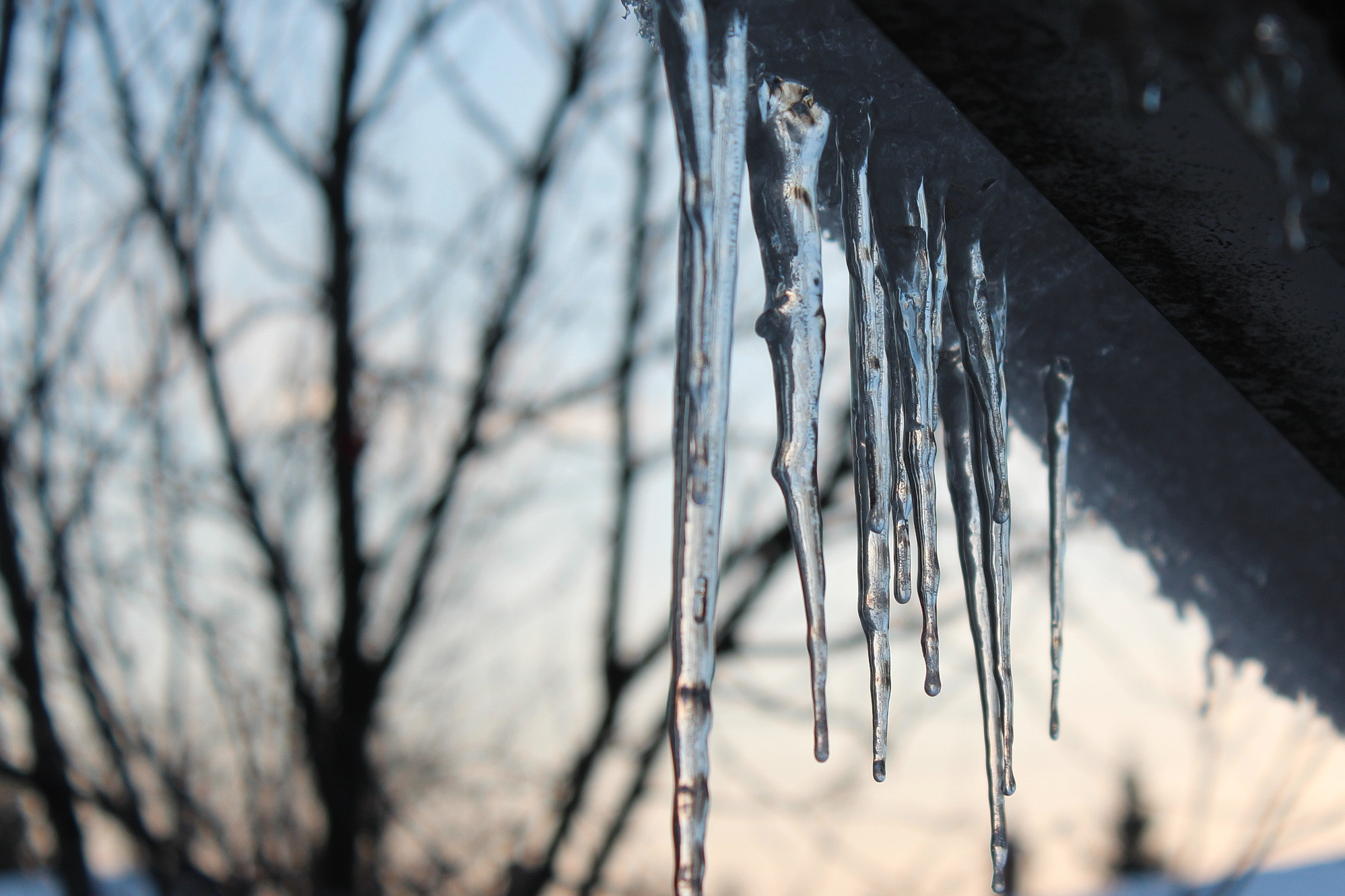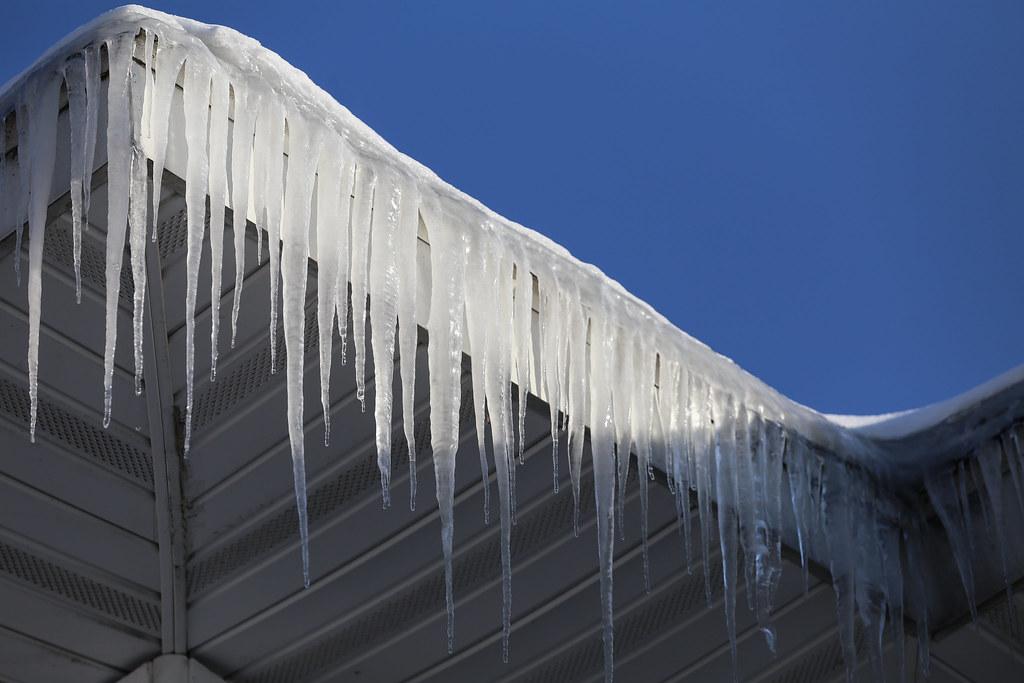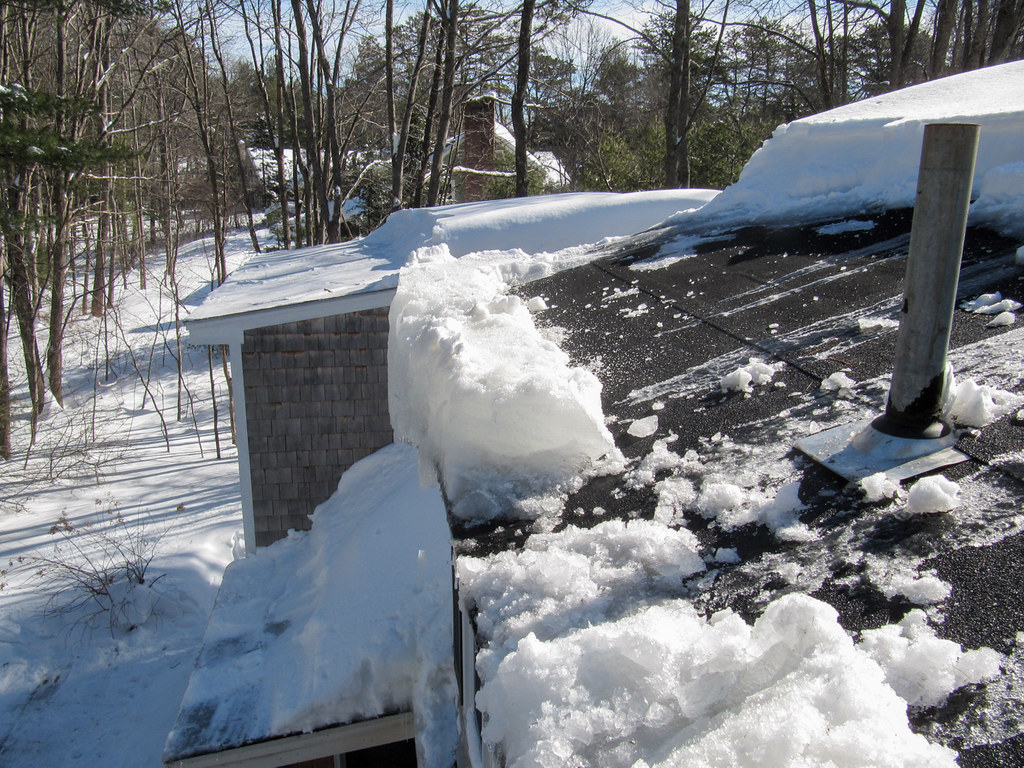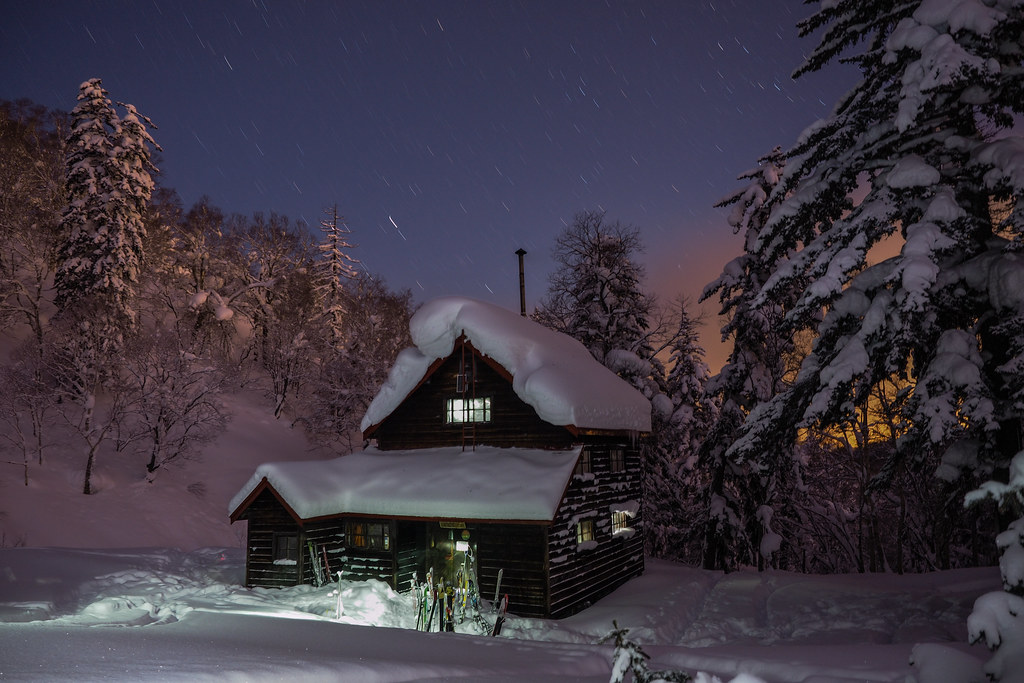
ICE DAM
WHAT CAUSES IT? HOW DO YOU FIX IT?
WHAT IS IT?
An ice dam is a buildup of ice on the edge of a roof that prevents melting snow and ice from draining off the roof. This can occur when the temperature is below freezing, and snow or ice has accumulated on the roof.
As heat from the sun or the house melts snow and ice, water is trapped behind the ice dam. This can lead to water damage to the roof, walls, ceilings, and insulation of the home.
Ice dams can also cause icicles to form, which can be a safety hazard if they fall from the roof.

HOW DO YOU FIX IT?
Fixing an ice dam typically involves removing the ice buildup from the edge of the roof, allowing melted snow and ice to properly drain off the roof. Here are some steps you can take to fix an ice dam:
1. Remove snow from the roof:
Using a roof rake, ice melt tape, or other snow removal tool, carefully remove as much snow as possible from the roof. This can help prevent further ice buildup and allow water to drain more easily.
2. Melt the ice
You can use a calcium chloride ice melt product to melt the ice buildup on the roof. Do not use rock salt, as it can damage your roof and gutters. You can place the ice melt in a sock and lay it across the ice dam, or sprinkle it directly on the ice dam.

It is important to note that removing an ice dam can be dangerous, so it may be best to hire a professional to do the job for you. Additionally, taking preventive measures such as improving insulation and ventilation in your attic can help reduce the likelihood of ice dams forming in the first place.

